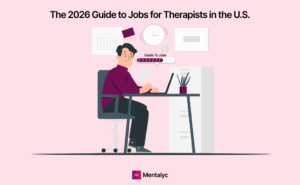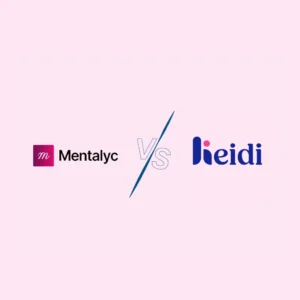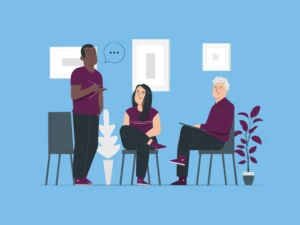Licensure is a very big step in your career as an aspiring counselor. Having a license proves that you are trustworthy. It also shows your compliance to high ethical standards. Asides maintaining your credibility and integrity, you will also be able to provide the best care to your clients.
In this article, we will walk you through the licensure requirements and how to deal with the challenges that come with it. This will enable you to move forward in your career with confidence.
Licensure Requirements For Professional Counselors
Educational Requirements
Firstly, it is important to complete a graduate program that is accredited. This is because some licensing bodies do not consider people who have not gotten a master’s degree. You can get a degree in counselling, psychology or social work. Although, this can take up to 2 or 3 years to acquire. Then, you can go further to have an MA or MS in professional counselling. You can also make the decision to also opt for other degree programs such as Clinical Mental Health, School or Rehabilitation Counselling.
Most of these programs usually have a comprehensive curriculum that covers human development, counselling theories including other areas like ethics, assessment and multicultural counselling. While you gain this knowledge on the foundations of counselling, you will need to pass the exams on it to get accredited. The process of getting accredited might require you to complete a period of professional practice.
These licensure bodies often take the due diligence to confirm that the applicant’s certification is from a recognized accrediting agency. As a counselor, might need to be accredited by the Council on the Accreditation of Counseling and Related Educational Programs (CACREP). This is the standard process of accreditation that esteems the counsellor as competent and legible to practice.
Supervised Experience
Having the academic requirements does not guarantee automatic licensing. As a counselor, you need to have supervised counseling experience. This training is usually called ‘practicum and internship’. It gives room for you to develop core skills such as assessment, diagnosis, and treatment planning. During this training, experienced counselors will guide you. You can get trained at the hospitals, mental health agencies, private practices, schools and rehabilitation centers. The number of supervised hours you need might be different across states. So, you need to put this into consideration. In countries like the US, you will need 2,000 to 4,000 hours of post-graduate supervised hours before you can get your license.
Licensing Examinations
You need to pass the licensing examination before you can become a professional counselor. When you pass this licensing exam, it proves that you are competent and ready to practice.
Ethical and Legal Standards
Licensing boards conduct background checks to confirm applicants’ ethical and legal standing. During the checks, they confirm that counselors don’t have a criminal history. This is because a record of criminal history will not enable them to work with clients.
The licensing board will also ensure that the counselor agrees to follow all ethical codes. You need to get familiar with their codes and guidelines before you begin to practice. This will help to prevent mistakes that can lead to the revocation of your license.
Continuing Education (CE)
You will need to renew your licenses at intervals. But before each renewal, you are to have completed some continuing education (CE) hours. Although, the CE can vary from state to state. This is one of the key things licensing bodies look out for as they expect you to stay up to date with all the recent updates in the industry.
Importance of Licensure for Professional Counsellors In Mental Health Practice
1. Competency and Standardized Training
Licensure ensures that counselors meet the educational and ethical standards of regulatory bodies. Before professionals get licensed, they undergo various coursework and supervised clinical hours. They also take exams that prove their competence in providing mental health services.
2. Clients and Public Safety
Clients generally feel more comfortable when their counselors are licensed. It shows that the professional counselor has gone through the necessary training and meets the required standards to practice. This further establishes a clients’ trust in the counselors expertise and ability to provide effective support. This licensing process also reduces clients’ exposure to unqualified persons. Licensure establishes a system of accountability such that clients can report a counselor’s breach of ethics to regulatory bodies. This promotes public safety.
3. Facilitating Insurance Reimbursements
Licensure proves that practicing counselors have the backing of a licensing body. This establishes their credibility. It also makes it possible for them to bill insurance companies for their services. This makes mental health care accessible to clients who use health insurance plans.
4. Professional Growth
Professional counselors undergo continuous training and education to keep their licenses. As a result, they constantly learn new treatment methods and ethical considerations. They also learn the best practices for mental healthcare.
5. Increased Employment Opportunities
Licensure is a major employment criterion for many organizations, schools, and agencies. Counselors who get licensed have the liberty to either work with these agencies or practice independently. It increases their career opportunities.
Step By Step Licensure Guide For Professional Counselors
1. Understand The Licensure Requirements In Your State
The regulation of licenses comes at the state and national levels. So, the requirements can vary from place to place. Verify the requirements of your state. You can get this information on the licensing board’s official website.
When checking for licensure requirements, confirm details about the educational training and supervised practice. Inquire about the required examinations, application fees, documentation, and renewal requirements.
2. Get The Required Educational Qualification and Complete The Supervised Clinical Experience
To get qualified for your license, you need to get a graduate-level degree in counseling or a related mental health field from an accredited institution. In a case whereby you are relocating, check the requirements of the licensing board in your new state. This will help to confirm if your educational qualifications match their standards.
Several schools allow their students to gain supervised experience before the end of their studies. These schools include internships and practicums in the academic curriculum. If you enrolled in such a school, keep a detailed log of client hours. Also, document supervision meetings and case discussions. These would come in handy as part of your supervised experience when needed.
3. Pass The Required Licensing Examinations
Once you have registered for the licensure examinations in your state, you can start preparing for the exam using official study guides. This will help you pass the examinations.
4. Submit Your Licensure Application
After getting all the licensure requirements, submit your application to the licensing board. Then, wait for them to approve it. During this time, you can follow up on your application status.
Common Challenges Faced By Professional Counselors During Licensure and How To Overcome Them
Meeting Educational Requirements
Most time, these licensure boards need counselors to have specific coursework and a degree from an accredited institution. But sometimes, the applicant’s educational background may not fully meet the requirements. This can make it difficult to apply for the license. Applicants, in this case, can take extra courses or enroll for other certifications.
Supervised Experience
Licensing bodies have stipulated supervised hours applicants need to qualify for licensure. Limited placement opportunities sometimes make this difficult to achieve. As an applicant, ensure to start seeking opportunities early. Actively network with professionals and volunteer for non-profit organizations. This could help you meet up with the required experience.
Passing The Licensure Examinations
Licensure examinations are sometimes challenging. This could lead to anxiety, which causes applicants to fail the examination. Before taking the exam, draft a workable study plan. During these study hours, use official study guides and practice tests. You can also consider joining a study group that will aid you in assimilating the study materials.
Maximizing your network of professionals can also help with overcoming study challenges. This network will guide you on pitfalls to avoid and the best approach to prepare for the licensure examination.
Financial Burden
The cost of applying for courses, licensing fees, and supervision expenses can be overwhelming. Ensure you plan for these costs ahead of time. During your planning, look out for scholarships, employer reimbursements, and Government grants. These financial schemes will reduce your financial burden and help you prepare for the exams better..
State-Specific Regulations
Licensure requirements vary across different states. This could pose a challenge for counselors who decide to relocate. It is easy to overcome this by staying updated with licensure reciprocity agreements. Also, take national licensing examinations. This will provide you with more flexibility to move across different states.
Conclusion
Becoming a licensed professional counselor isn’t as difficult as it seems. Whether you’re newly getting your license or preparing for renewal, the information shared above will guide you. Depending on your specialization and the setting, ensure to keep an accurate documentation of your clinical experience with clients. Mentalyc can help you with your case management. The Mentalyc AI powered App will assist you with writing automatic progress notes. It is completely HIPAA compliant so, you can start your free trial today to make the documentation process easier. This will help you stay fully organized and prepared for your licensing journey. Once you have completed the licensing requirements for professional counselors, you can fully practice without constraints.
Frequently Asked Questions
1. Are Licensure Requirements Universal?
No, it is not universal. Having a license is a proof of your knowledge especially when it is backed up by recognizable accrediting agencies. However, the licensure requirements vary across states and countries. As a counselor, you should check what the licensing board of your state requires.
2. Is It Compulsory To Complete Continuing Education To Maintain The License?
Yes. Completing continuing education is very important and it is to be done every renewal cycle. However, the number of Continuing Education Units (CEUs) you are expected to take depends on your state.
3. Can I Transfer My Counseling License To Another State?
It largely depends on the state reciprocity agreement before you can successfully transfer your license. The process of some states are not as tedious as others. However, some states might require you to take some courses and exams before you can practice.
Why other mental health professionals love Mentalyc

“If I were recommending this software to a colleague, I would tell them that it is the best thing that they could do for their practice.”
Licensed Professional Counselor

“It immediately changed my quality of life, personally and professionally.”
Owner/Independently Licensed Marriage & Family Therapist (LMFT)

“For anyone hesitant: this is a lifesaver. It will change your life, and you have more time to be present with your patients.”
Licensed Clinical Social Worker

“Do yourself a favor, make your life easier. I found Mentalyc to be one of the best tools that I’ve ever used.”
Licensed Marriage and Family Therapist






